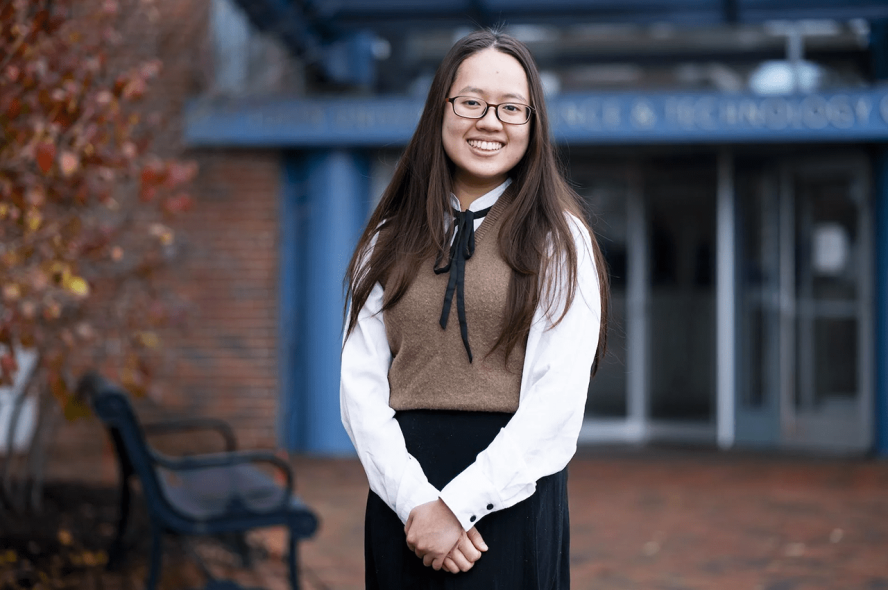Where engineering pathways begin: Ivy Le, E25

Ivy Le, E25, of Ho Chi Minh City, Vietnam, developed her fascination for science at The Governor’s Academy in Massachusetts. At Tufts, she has gravitated to chemical engineering. She is now one of two undergraduates supporting research in the lab of James Van Deventer, Bright Futures Assistant Professor in the Department of Chemical and Biological Engineering. She also enjoys the community of students who share an interest in sustainability and cellular agriculture as an event coordinator for the Tufts Alt Protein Project.
“I came here thinking that I wanted to do biology and some sort of economics. The pandemic pushed me into thinking about vaccines; I got interested in—and I'm still fascinated by—the fact you can't even see the virus, but it affects us all in significant ways. It changed the entire world. The summer before my senior year in high school, when COVID hit, I took a class online with a Stanford Ph.D. candidate on protein biophysics. It opened my thinking about biotechnology as a possible field of study.
“One of the first courses I took at Tufts was an econ course, and while it was interesting, I realized professionally it wasn’t for me. So I talked to professors about biotechnology and chemistry, work that would be more hands-on.
“That led me to find out that Tufts offered a chemical engineering major. Professor Emmanuel Tzanakakis [chair of chemical and biological engineering] recommended it as a choice because it’s super versatile. So I thought: Maybe this is for me—which is funny because my dad is a civil engineer, and growing up I always said I don't want to do what you do! But my passion was directing me toward some kind of antibody research or vaccine development, and so here I am.
“The first class in chemical engineering, the actual core class with Professor Van Deventer, taught me a totally different way of thinking. He was good at introducing the new concepts: this is what Chem Es do and this is what we think about, and this is how we solve problems. Despite the breadth of the Chem E curriculum, I still have the opportunity to specialize in what I want to do later on through my electives and research. Not only that, my core engineering classes also teach me to productively and efficiently solve problems.
“I have a friend who said: When you're going to your Chem E classes, you're going there to learn what you don't know, and then you go home to learn more about it again. That is so true. You revisit the concepts and read the textbook again, you do your problem sets and talk to your friends. The class is just an introduction to concepts you have never heard before. You take them further when you then go through your textbook again and ask: OK, so what's going on? And that’s what I love about engineering: how it keeps moving forward.”
Read more student profiles in Where Engineering Pathways Begin by Laura Ferguson/Tufts Now.